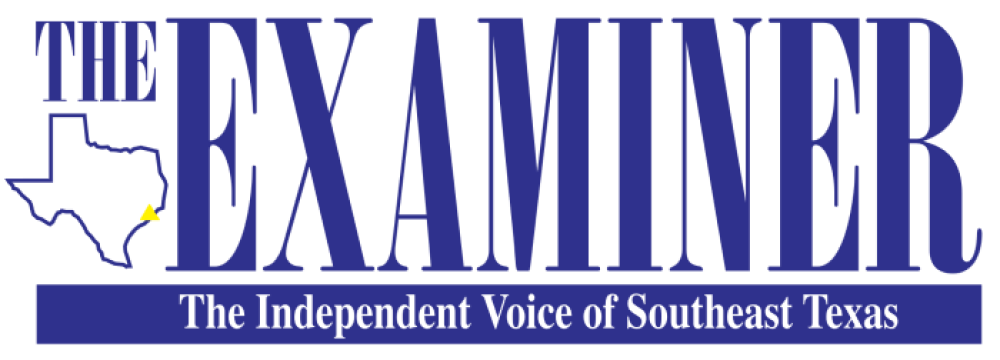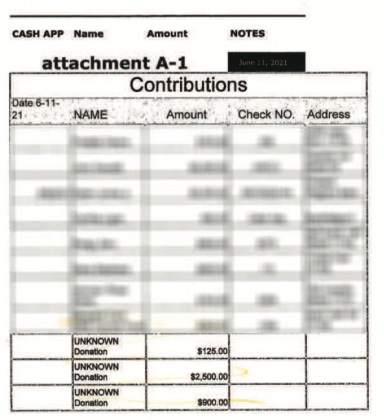Prohibited patrons revealed in finance reports
After weeks of parrying Examiner inquiries and postponing responses, Beaumont’s newly elected mayor relinquished donation data that reveals she accepted thousands of dollars contributed from illegal sources to fund her successful 2021 runoff campaign.
Combing through nearly $55,000 in campaign contributions, along with Texas Ethics Commission (TEC) regulations regarding donation restrictions, shows that Beaumont Mayor Robin Mouton illegally accepted $11,525 from seven sources in her march toward the city’s premier executive position.
Each illegally accepted donation action constitutes a separate Class A misdemeanor in the eyes of Texas law, according to Title 15 of the Texas Election Code. Additionally, “A person may not knowingly make or authorize a political expenditure wholly or partly from a political contribution the person knows to have been made in violation of this chapter,” read the guidelines updated September 2019.
While inspecting Mayor Mouton’s campaign finance reports, which were first delivered incomplete before the full report was sent more than a month later, The Examiner reached out to TEC General Counsel J.R. Johnson for insight on the issue.
“Corporations and labor organizations are prohibited from making political contributions to candidates or officeholders and from making unrestricted contributions to general-purpose political committees,” Johnson offered. “But, not every business is considered a corporation for the purposes of the prohibition. The prohibition is specific to businesses that are organized as for-profit and nonprofit corporations, or businesses that engage in certain activities, such as banks or insurance companies, regardless of how the business is organized.”
Explaining that he couldn’t opine on specific cases yet to be reported to the TEC, Johnson said labor unions and organizations are barred from making donations to political campaigns, whether directly or via union funds funneled through a political action committee.
By that metric, $8,000 in Mouton-bound donations reportedly from Engineers Union Local 450, Plumbers Local 68, Pipefitters Local 211 and CWA Local would all be considered illegal by the TEC.
Also, according to campaign finance reports from Mouton’s campaign, the mayor accepted $3,525 from three sources listed as “unknown.” Texas campaign law states that candidates’ reports must disclose the actual source of a contribution, not an intermediary.
According to a 2020 ruling from the TEC on a mayor found guilty of accepting illegal campaign funds from “anonymous” donors, a former Arlington mayor was fined $1,500 after another candidate reported donation violations to the commission. Jeff Williams, who also won his election with illegally obtained funds, was penalized for multiple campaign infractions, including accepting $1,700 from a “hat-pass” at a campaign event and listing the money as “anonymous cash.”
The TEC campaign finance guide provides candidates with a clear message on the permissibility of anonymous contributions, emphatically stating, “Texas law does not allow anonymous contributions.”
Still, merely receiving a check from the coffers of a prohibited source doesn’t quite break the threshold of illegality. According to the TEC, candidates have until the end of a reporting period to “accept” a contribution from a source, noting that receipt is different from acceptance. The Mouton campaign had nearly a month to return the funds between the date of the final union check, May 14, and the impending reporting cut off on June 11.
Mouton could have avoided potential penalty by returning the funds before the June 11 reporting date, according to TEC regulation. However, accepted campaign contributions can be used to bail the mayor out of any fine she might incur from the TEC for receiving illegal donations. Reversing an 11-year-old opinion written by the Secretary of State’s office when it held administrative duties over the TEC, the commission had this to say when asked for an opinion on the matter in 1994: “A candidate may use political contributions for purposes connected with activities as a candidate for an elective office.”
Despite the relatively restrictionless path to paying TEC-issued fines, the commission has amassed a list of more than 300 Texas politicians who owe cumulatively well over $1 million in fines for not reporting campaign finances properly. According to the TEC’s Delinquent Filer List, at least four Golden Triangle politicians owe the TEC money for violating campaign finance law.
Former Texas House of Representatives candidate Jacorian Randle owes the commission $9,500, according to the list updated Oct. 5. Fellow former state representative hopefuls LaMartin Jones-Anderson and Sally Tootle each owe $1,000. Jolei Shipley, former candidate for judge of the 317th District Court, allegedly owes $500.
According to the TEC campaign finance guide, any citizen may file a criminal complaint with the district attorney, a civil complaint with the Ethics Commission or a civil action against a candidate or office-holder for violations of Title 15. Consequently, any penalty stemming from such complaints would be assessed against the candidate or officeholder.
As of publication, Mouton had not responded to requests for comment via calls and texts to multiple numbers. Mouton’s treasurer, the mayor’s sister, could also not be reached via phone at press time.
Subscribe or donate today. The Examiner with each and every issue informs, engages and holds the powerful to account, please help us in that mission, it is expensive yet essential to maintain a free society.


